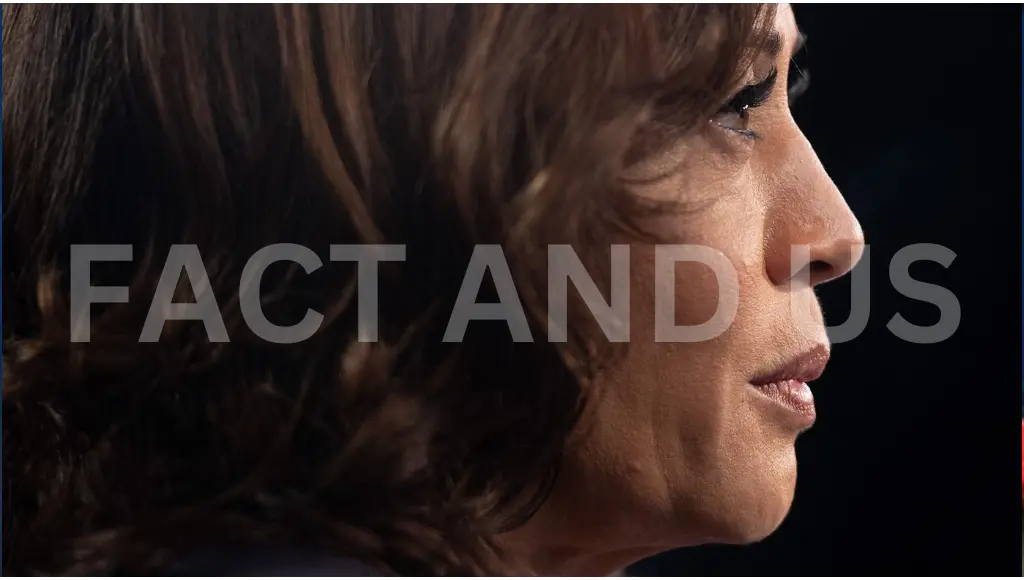As the political landscape heats up for the upcoming presidential election, Vice President Kamala Harris’s debate skills are coming under the spotlight. Known for her sharp wit and strategic approach in past debates, Harris has established a reputation for being a formidable presence on stage. With former President Donald Trump expected to be a key opponent, many are wondering whether Harris’s debate tactics will be as effective against him as they have been against other contenders.

Harris’s debate style is marked by a combination of incisive questioning, detailed policy knowledge, and a strong command of the facts. In her previous debates, including those during the 2020 Democratic primaries, she effectively used these skills to challenge her opponents and make her case to the electorate. Her performance against then-candidate Joe Biden in 2019, for instance, was notable for its depth and precision, drawing attention for her ability to hold her ground and present compelling arguments.
One of Harris’s hallmark strategies has been her ability to remain calm and collected while delivering pointed critiques. This approach has served her well in various political forums, enabling her to make a strong impression without getting embroiled in personal attacks or emotional confrontations. Her measured yet assertive demeanor has been praised for maintaining a balance between forcefulness and professionalism.
However, facing Donald Trump presents a unique challenge. Trump’s debate style is known for its unpredictability, brashness, and often confrontational tactics. His previous debates have frequently involved interruptions, aggressive retorts, and a focus on personal jabs rather than policy discussions. This style can create a dynamic that is difficult to counter, requiring opponents to adapt their strategies accordingly.
In preparation for a potential debate with Trump, Harris’s team is likely honing strategies to address his unorthodox approach. Key to her success will be her ability to stay focused on substantive issues while navigating the potentially chaotic nature of Trump’s style. Past experiences suggest that Harris could leverage her strengths—her detailed policy knowledge and ability to articulate clear, fact-based arguments—to counter Trump’s more rhetoric-driven tactics.
Another factor to consider is Harris’s track record of engaging directly with voters. Her ability to connect with audiences through relatable anecdotes and clear communication may serve her well in countering Trump’s attempts to dominate the narrative. By emphasizing her policy proposals and vision for the future, Harris can seek to redirect the conversation toward constructive discourse rather than getting caught up in personal or inflammatory exchanges.

Kamala Harris Thrives in Debates
Political analysts are keenly observing how Harris will adapt her approach in this high-stakes environment. Her success in debates has often depended on her ability to project confidence and clarity, traits that will be crucial in a face-off against a seasoned debater like Trump. Additionally, Harris’s team will need to prepare for rapid responses and strategies to handle any potential disruptions or tactics aimed at derailing the debate.
As the campaign season progresses, all eyes will be on the debates as a critical platform for both Harris and Trump to make their cases to the American public. Harris’s debate performance could play a significant role in shaping voters’ perceptions and influencing the election’s outcome. With her track record of thriving in debate settings, many are watching to see if her tactics will translate effectively against a formidable opponent like Trump.
The Highest Stakes Yet
Republicans have circulated clips of Harris’s public remarks for years to ridicule her speaking style and cast her as inept. She has used verbose phrases when speaking off the cuff, and while a few turns of phrase have been embraced by her supporters, opponents have often criticized her for a lack of clarity.
In a recent CNN interview, her first since becoming the nominee, she gave an answer on climate change that illustrated the issue. “It is an urgent matter to which we should apply metrics that include holding ourselves to deadlines around time,” Harris said. On a debate stage, however, speaking time is limited and clarity of message is crucial. The looming debate on ABC News will be her biggest chance yet to reset public opinion, and past debates show that Harris often brings a sharp toolkit to these events and is able to land blows. But the pressure of those past debates will pale in comparison to the stakes when she comes face-to-face with Trump for the first time.
Even for the most experienced politicians, Trump presents a formidable challenge, strategists agreed. In a 2016 debate against his Democratic opponent, Hillary Clinton, he famously stalked her around the stage, drawing all attention to him even when it was her turn to answer. His first 2020 presidential debate against Biden devolved into an unintelligible melee when Trump kept interrupting. At one point, Biden grew so irritated he snapped, “Will you shut up, man?”
“Donald Trump is a unique and special case in that you never really know what’s coming,” said Ms. Smith, who has prepared Democratic candidates for debates. “During debate prep, I would not allow her to get comfortable, in order for her to develop some sort of instinct, or callousness, to anything that could come up.”
Harris, a former prosecutor, is skilled at back-and-forth exchanges on the debate stage. It is something she has also demonstrated during heated Senate hearings when she has grilled Trump officials and Supreme Court nominees.
But the format of the upcoming ABC debate may limit her ability to flex her prosecutorial skills, as the microphones will reportedly be muted when it is the other person’s turn to speak. This likely means, based on the Biden-Trump debate in June, which had the same rules, that she will be fielding tricky questions from moderators as opposed to clashing with Trump.
Stay connected with fact and us for more such news.
